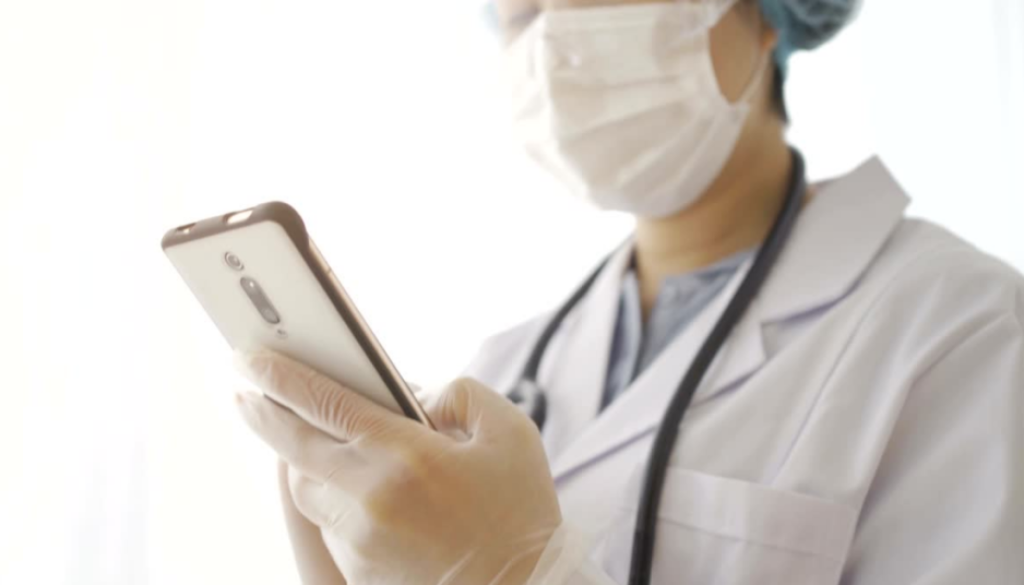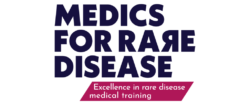Rare Diseases Action Plan Focus on Action 6
In this post Emma will focus on Action 6 of the England Rare Disease Action Plan; develop an innovative digital educational resource. This is the first action listed in the Plan related to Priority 2: Increasing healthcare professional awareness.
Health Education England is developing an innovative digital educational resource, ‘GeNotes’, to help healthcare professionals make the right genomics decisions at each stage of a clinical pathway by providing concise ‘just-in-time’ clinical information to support patient management. Content is developed by clinicians who are members of expert working groups that cover different clinical specialties, for example oncology, paediatrics and foetal and women’s health.
Action 6. The England Rare Disease Action Plan 2022
Just in time resources
M4RD greatly welcomes the use of technology where it can help speed up the diagnostic process and management of patients with rare diseases. ‘Just in time’ resources are indeed valuable, when healthcare professionals have the ability to access them quickly. Especially in rare disease where the majority of conditions will be unfamiliar to the majority of healthcare professionals.
However from M4RD’s joint experience of the IT infrastructure within the NHS, we understand that it comes with its own challenges in terms of fast access to adequate equipment. This can be limiting and frustrating for staff.
It is also worth noting that:
- patients can feel alienated by medical professionals who are heavily engrossed in mobile phones, laptops and desktop computers
- the use of smart phones on wards, particularly by juniors, can come with stigma as they are mistakenly assumed to not be working
- appropriate technology may be impractical and inaccessible in certain circumstances e.g. lack of wifi/data signal or limited access to computers
GeNotes
In 2014, Health Education England (HEE) launched a four-year £20 million Genomics Education Programme (GEP) to ensure that the NHS workforce is ready for the genomic revolution that is upon us. Not a small task. The GEP website is a treasure trove of genetics and genomics related resources. It is great to hear of the concerted effort of Health Education England in developing a useful digital resource that is readily and freely available to healthcare professionals. It is currently not completely clear exactly how GeNotes will look and function or how it will approach the 80% of 7000 rare diseases that have a genetic origin. However we look forward to learning more about this initiative.
Given that the Genomics Education Programme has been in existence since 2014 it would be interesting to evaluate the impact of current resources, to understand its reach and audience. M4RD is aware of how competitive the online medical education field is and that the best content doesn’t always get the greatest traffic. With such an investment going into the development of this resource, it would be reassuring to see evidence to back up the use of this platform as the main education platform for rare disease.
Familiarity is Key
In addition M4RD is aware that medics are most likely to turn to familiar resources that they know and trust, such as NICE Guidelines, NICE Clinical Knowledge Summaries, GP Notebook and the NHS website. Therefore, it is reassuring that the Action Plan stipulates that GeNotes will be integrated into other digital platforms and websites that HCPs regularly use. M4RD believes integration within the relevant online platforms is essential, if GeNotes is to become a regularly used and trusted platform. Indeed M4RD is also striving for Rare Disease 101 to be integrated into undergraduate medical curricula and included in post-graduate training. Rare Disease 101-type education is featured on MedScape and there are projects in the pipeline with other educators. So watch this space!
Additionally, in order for GeNotes to become used and trusted by the relevant people, it will need a strategic training programme. This would be essential to ensure appropriate usage, understanding of its strengths and limitations and also simply just to increase awareness of GeNotes.
A novel medical education approach is needed to reduce inequity in rare disease
We’re looking forward to understanding more about the main outcome of Action Point 6: GeNotes. It sounds like it could have the potential to be a really useful resource for familiarising doctors on how to manage people with genetic conditions and how to problem solve. However our perspective is that in order to reduce inequity between people living with rare conditions a few principles need to be kept in mind when approaching medical education:
- without providing disease-agnostic education based on common challenges and core competencies there is risk of some groups slipping through the educational net
- ‘Cherry-picking’ conditions runs the risk of further marginalising some communities
- not all rare conditions have a genetic origin
- the genetic aetiology of those rare diseases that are genetic is only one facet of these complex conditions
- while diagnosis is a very important part of the patient journey, there is a lot of life beyond diagnosis and education also needs to focus on long-term holistic care
- genetic conditions have historically been taught about through a biomedical lens without enough focus on the experience of the patient and the impact of the condition
We also urge that any new rare disease education tools are patient-centric and co-produced alongside those living with rare conditions. This is essential for them to ensure they are relevant and sympathetic to the lived experience.




